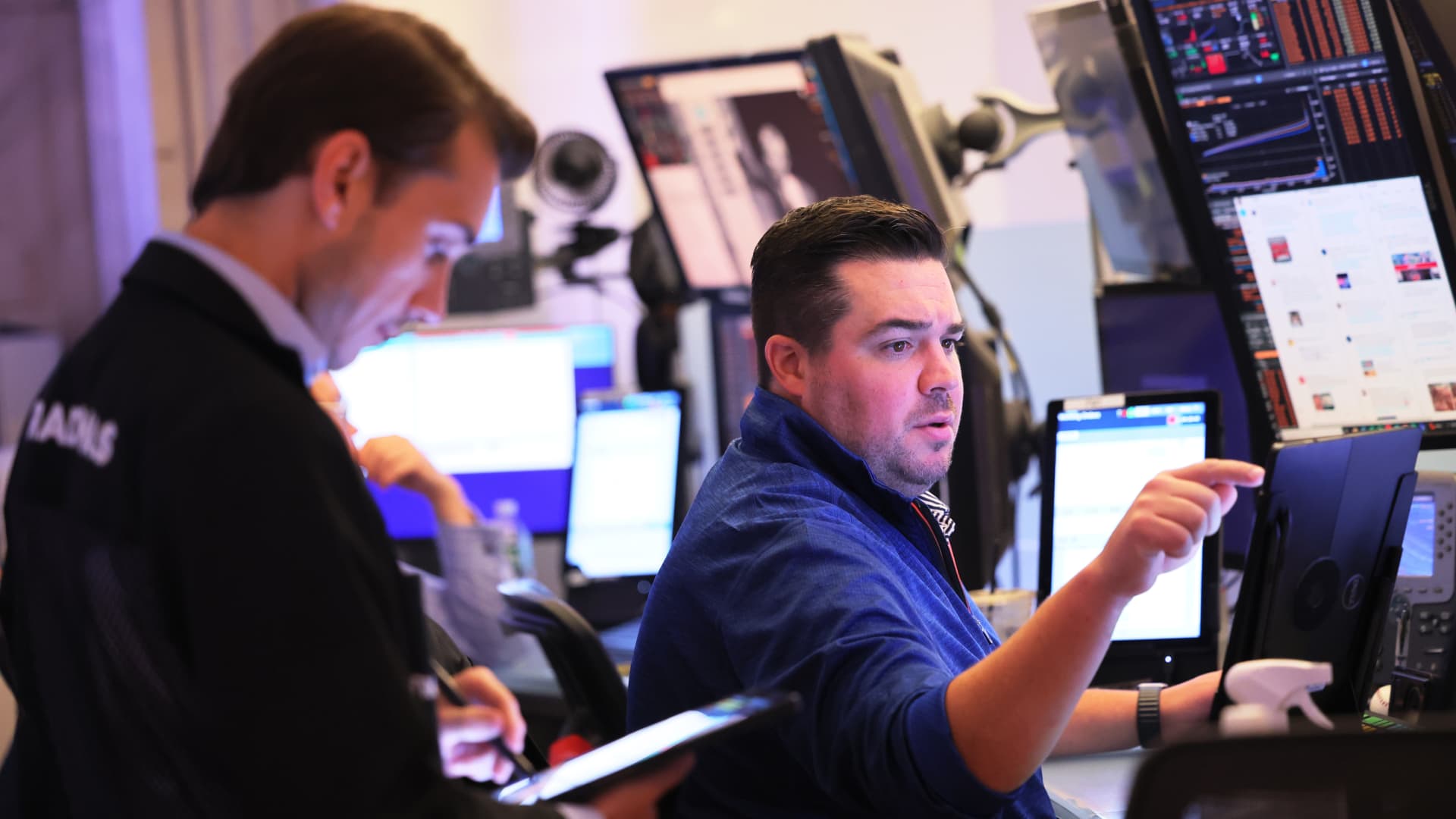
When it comes to picking stocks, Hannah Gooch-Peters of asset management firm Sanlam Investments UK avoids chasing trends. She said she believes investors need to look beyond the “Magnificent Seven,” referring to Apple , Amazon , Alphabet , Meta , Microsoft , Nvidia and Tesla — tech stocks that have made massive gains this year. The global equity investment analyst told CNBC Pro Talks last week that the firm looks for high-quality companies all over the world. ‘Very specific’ definition of quality But Gooch-Peters has a “very specific” definition of quality. “We’re looking for companies ultimately, that have fantastic economic moats, very high barriers to entry, the ability to grow their free cash flows over the long term,” she said. “And then the second thing is we want to make sure that we’re not overpaying for those quality names.” Sanlam’s $5 billion-plus Global High Quality Fund invests in global stocks with a “high quality bias.” They include companies that have a high return on capital, low debt, and a “sustainable competitive advantage” that produces significant free cash flow. That fund beat the broader market by 9% in 2022, according to Gooch-Peters. Besides that focus on quality, she said, her firm has been very valuation-driven when it comes to picking stocks. Free cash flow yield is the most important metric to Gooch-Peters. The companies her firm picks have rather low capital expenditure as a percentage of their sales, she said. “We wouldn’t have outperformed the way we did last year … if we were trend followers,” she said. “We’re not contrarian investors either. We’re just very, very focused on having a valuation based fundamental framework to everything we do,” she said. Stock picks Here are five of Gooch-Peters’ top stock picks. Fiserv : Global payments company Fiserv stands out for being diversified and for its recurring revenue, according to Gooch-Peters. Services that Fiserv offers include financial tech and payments processing, she noted. Its financial tech segment has “much slower growth” but has “very, very high” barriers to entry, she said. “Because if you have a core of a bank captured within your business, it’s very difficult and also very risky to move that away. And so those … clients that’s recurring revenue — and they’re very, very sticky — is growing at about 3%.” Gooch-Peters said the company is capturing the “huge, long term secular trend” of cash-to-card conversions. With inflation, payment volumes are also going up as consumers pay more for goods and services, she pointed out. Yum Brands : Gooch-Peters said the restaurants group, which operates brands such as KFC, Taco Bell and Pizza Hut, is a “fantastic company.” KFC has over 40,000 restaurants and Yum hopes to add another 100,000 in the long term, she said. “Their story is very much about this unit growth, this expansion opportunity,” she said, adding that the opportunity is “massive.” “They are fully franchise model and so their capital expenditure is very, very low.” Intuit : The U.S. business software firm targets a “very different” type of market from giants such as Microsoft and SAP, and it’s also a “very fast-growing” market, said Gooch-Peters. It sells very specific tax and accounting software, with small and medium companies making up its customer base, she said. “So what may be more applicable to a very large business where you’ve got multimillion or billion dollar market caps, we have like a big enterprise resource planning software like SAP. That’s not really applicable to a company that’s say turning over sort of five to 10 million pounds a year,” she said. Intercontinental Exchange : Gooch-Peters called this exchange operator a “formidable” business. It has tapped the huge amount of data from its exchanges arm to boost its data analytics service. It also has a “mortgage-signing technology service which is “really, really exciting,” she said. “We think the runway for growth, particularly on that mortgage technology side is really exciting.” Read more here. Samsung Electronics : Gooch-Peters said the South Korean giant has an edge over other chipmakers because it has lots of cash, and it’s “very stable” smartphone business allows it to diversify its revenue. Read more here.
